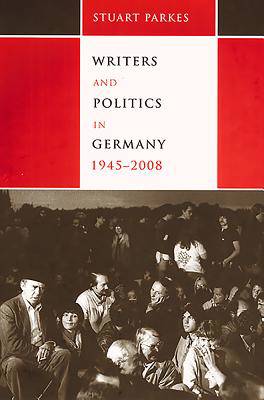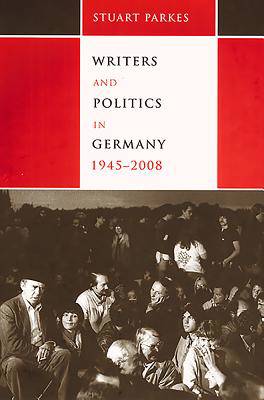
Bedankt voor het vertrouwen het afgelopen jaar! Om jou te bedanken bieden we GRATIS verzending (in België) aan op alles gedurende de hele maand januari.
- Afhalen na 1 uur in een winkel met voorraad
- In januari gratis thuislevering in België
- Ruim aanbod met 7 miljoen producten
Bedankt voor het vertrouwen het afgelopen jaar! Om jou te bedanken bieden we GRATIS verzending (in België) aan op alles gedurende de hele maand januari.
- Afhalen na 1 uur in een winkel met voorraad
- In januari gratis thuislevering in België
- Ruim aanbod met 7 miljoen producten
Zoeken
Omschrijving
George Orwell said that all writing is political; but the writers of some nations and some periods are more political than others. German writers after 1945 have exemplified such heightened politicization, and this book considers their contribution to the democratic development of Germany by looking principally at their directly political, non-fictional writings. It pays particular attention to writers and the student movement of the 1960s and '70s, when some proclaimed the death of literature and called for a turn to direct political action. Yet writers in both parts of Germany gradually came to identify with their respective states, even if the idea of one Germany never entirely disappeared. The unification of 1989-1990, in which this idea astonishingly became reality, posed a major (and some would say unmet) challenge to writers in both East and West. After looking at this period of intense political activities, the book considers the continuing East/West division and changing attitudes to the Nazi past, asking whether the intellectual climate has swung to the right. It also asks to what extent political involvement has been a generational project for the immediate postwar generation and is less important for younger writers who see the Federal Republic as a "normal" democratic state.
Stuart Parkes is Emeritus Professor of German from the University of Sunderland (UK).
Stuart Parkes is Emeritus Professor of German from the University of Sunderland (UK).
Specificaties
Betrokkenen
- Auteur(s):
- Uitgeverij:
Inhoud
- Aantal bladzijden:
- 239
- Taal:
- Engels
- Reeks:
Eigenschappen
- Productcode (EAN):
- 9781571134011
- Verschijningsdatum:
- 15/01/2009
- Uitvoering:
- Hardcover
- Formaat:
- Genaaid
- Afmetingen:
- 160 mm x 234 mm
- Gewicht:
- 635 g

Alleen bij Standaard Boekhandel
+ 244 punten op je klantenkaart van Standaard Boekhandel
Beoordelingen
We publiceren alleen reviews die voldoen aan de voorwaarden voor reviews. Bekijk onze voorwaarden voor reviews.









